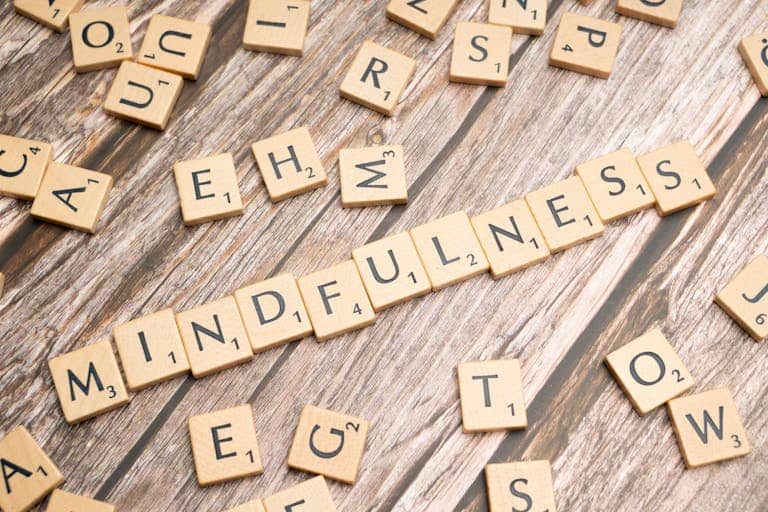
Understanding Emotional Intelligence
Key Elements of Emotional Intelligence
Diving into emotional intelligence (EQ) has really been a game-changer for me. It breaks down into four big buckets: self-awareness, self-management, social awareness, and relationship management. These aren’t just fancy terms but rather very crucial skills that help me tackle life’s ups and downs.
Self-Awareness is all about being in tune with my own emotions. Think of it as having a little alert system inside me that says, “Hey there, you’re feeling a bit stressed, maybe take a breather.” It’s like having a built-in emotional GPS that guides me away from possible meltdowns.
Self-Management kicks in once I’m clued in about my feelings. It’s about keeping my cool when things heat up and going with the flow even when something unexpected pops up. I’ve got to tame those pesky emotions before they throw me off balance.
Social Awareness steps in to help me tune into other folks’ emotions. It’s about being able to pick up on vibes and understand how things are shaking out in a group. This skill makes me an empathy ninja, helping me navigate social landscapes smoothly.
Relationship Management takes what I’ve learned about my feelings and others’ vibes and puts it into action for better interactions. It’s about talking things through without coming across badly and solving squabbles like a pro.
These elements make up the heart and soul of EQ, giving me a deeper look into myself and the way I mesh with those around me.
Importance of Emotional Intelligence in the Workplace
At work, the importance of emotional intelligence (EQ) can’t be missed. Folks with high EQ have a knack for performing well, staying the course during stressful stints, and ironing out conflicts like pros. I’ve noticed how ramping up my EQ has worked wonders on how I vibe with my work buddies and boosted my productivity.
Managers who get the whole empathy thing get a thumbs up from higher-ups. Empathy is key for managing relationships, building trust, and creating a friendly workspace vibe. By being aware of the emotional drumbeat of my team, I can lend a solid hand, which pumps up job satisfaction and cranks up productivity.
Emotional intelligence also ups the ante in leadership. Leaders with a good grip on self-awareness and self-management face stressful scenarios without snapping. Keeping it together under pressure really bolsters their team’s confidence in them.
Also, being sociably aware and good at managing relationships makes it way easier to read the room, get where others are coming from, and talk in ways that stick. This approach, rooted in EQ, leads to a more upbeat and productive work vibe.
For some handy tips to boost your EQ career-wise, swing by our articles on mastering your emotions, building mental toughness, and developing emotional resilience.
| Element | Description |
|---|---|
| Self-Awareness | Recognizing and understanding your own emotions |
| Self-Management | Keeping those emotions in check and staying chill when stressed |
| Social Awareness | Tuning in and understanding others’ emotions |
| Relationship Management | Handling interactions smoothly with emotional smarts |
Sinking some time into growing emotional intelligence can turn the workplace into a friendlier, more communicative, and creatively charged place. Whether it’s through formal training or some deep soul-searching, building up these skills brings huge wins for both personal growth and professional prowess.
Emotional Intelligence Competencies
Learning the ropes of emotional intelligence has been a game-changer on my journey to becoming emotionally savvy. Emotional intelligence, or EI, boils down to four key things: knowing yourself, managing yourself, understanding others, and getting along with people (Harvard Business School Online). So, let me share how these skills have shaped my personal growth.
Self-Awareness and Self-Management
Knowing myself has been the bedrock of honing my emotional smarts. It means tuning in to my feelings and seeing the ripple effects they have on my thoughts and actions (Harvard Professional & Executive Development). Getting a handle on this helped me figure out what sets me off emotionally and how I react to things.
As I kept digging into emotional intelligence, it hit me that knowing myself and managing myself are two sides of the same coin. Managing myself is all about keeping those knee-jerk reactions in check, rolling with the emotional punches healthily, and sticking to my plans. It turns out, good self-control thrives on being in tune with my emotions.
Here’s a quick look at how knowing yourself and managing yourself stack up:
| Competency | Description | Importance |
|---|---|---|
| Knowing Yourself | Picking up on personal feelings and their consequences | The bedrock for keeping yourself in check |
| Managing Yourself | Keeping feelings, actions, and impulses in line | Essential for staying calm and hitting your goals |
To sharpen my self-awareness, I got into mindfulness and journaling. This made me take a closer look at how I react emotionally and gave me the tools to rein in those reactions—a huge element of mastering your emotions.
Social Awareness and Relationship Management
Social awareness is about tuning into and feeling what others are going through. Empathy, a big piece of this puzzle, has done wonders for my social life, making interactions and relationships so much better (Harvard Professional & Executive Development). Spotting others’ emotions paves the way for kindness and open talks.
Then there’s getting along with people, which involves all the tricks needed to foster healthy bonds. We’re talking good chatting skills, settling arguments, and being a team player. Getting better at managing relationships has upped my social game, making them more fulfilling and less of a hassle.
| Competency | Description | Importance |
|---|---|---|
| Social Awareness | Tuning into and empathizing with others’ feelings | Boosts compassion, improves learning from others |
| Relationship Management | Cultivating and sustaining healthy connections | Enhances teamwork, resolves issues adeptly |
Grasping these skills has helped me grow emotionally and strengthen my relationships. Practicing them has also given me more grit and a cooler handle on stress (HelpGuide).
If you’re keen on diving deeper into emotional intelligence, trying out activities for building mental toughness and growth mindset practices can really hit the spot. Keeping these skills sharp is crucial for juggling feelings and mastering the emotional game.

Developing Emotional Intelligence
So, there I was, on a quest to get a handle on my emotional intelligence (EQ) and make life a bit smoother. Self-awareness and empathy stood out as two biggies on this path. Figuring out how to deal with life’s bananas moments with some flair really boiled down to these two areas.
Strengthening Self-Awareness
First up, self-awareness. Think of it as the foundation of this emotional smarts business. It’s all about figuring out what makes me tick emotionally and how my vibes affect others. And yeah, it involves some real talk with myself about my strengths and those less-than-stellar traits I’d rather gloss over, plus how folks see me. It’s a bit like being Captain Obvious in your own life, but in a good way.
One tool that’s been super helpful is the 360-degree feedback thingy. Getting input from everyone around me — bosses, co-workers, the whole shebang. This feedback gave me a full picture of how I come across, which was enlightening, to say the least (Harvard Business School Online).
Check out a few ways that helped me boost my self-awareness:
| Activity | What it Taught Me |
|---|---|
| 360-Degree Feedback | Asking everyone I work with for their two cents on my behavior. |
| Journaling | Writing down my daily drama and seeing patterns in my reactions. |
| Mindfulness Meditation | Practicing to pay attention in the moment and get a grip on my own thoughts. |
| Personality Stuff | Using tools like the MBTI to learn about my own quirks. |
Check this out for some extra juicy deets on emotions: Mastering Your Emotions.
Building Empathy Skills
Next on the agenda: empathy. It’s about really getting where others are coming from, which is crucial for making those deep connections, whether in my career or with friends (AAFP).
Putting myself into other people’s shoes sounds easy, but it took a bit of work. Here’s some stuff I did to pump up my empathy game:
- Active Listening: Fully tuning in to others — no daydreaming — and responding like I mean it.
- Reading Different Stories: Diving into books that show life from all sorts of angles.
- Helping Out: Volunteering hooked me up with people from all walks of life and helped me find more compassion.
Here’s a peek at empathy-boosting activities:
| Activity | How it Works |
|---|---|
| Active Listening | Totally focusing on what someone’s saying and responding thoughtfully. |
| Reading Literature | Exploring stories that open my mind to new emotions and experiences. |
| Volunteering | Getting involved with different communities to understand others better. |
| Trying New Perspectives | Imagining what life’s like for someone else to get their viewpoint. |
Wondering how to make your emotions bollocks-proof? Developing Emotional Resilience is where it’s at.
Working on these areas seriously upgraded my EQ, improved my relationships, and just helped me get along better with the world. My journey has led not just to self-growth, but maybe even a better world. If growth mindset’s your jam, we’ve got Growth Mindset Practices to check out.
Benefits of Emotional Intelligence
Resilience and Effective Stress Management
Emotional intelligence, or EQ as we fancy folks call it, has a magical way of toughening us up and helping us manage stress like champs. When I hopped on the emotional smarts train, I noticed it made stressful times way more bearable. Like that moment when stress decided to party on my nerves!
Understanding our feelings and tuning in to them is key to handling stress without losing our marbles. Mindfulness, for instance, acts like a flashlight on our emotions, reshaping how I see ’em and how I react (HelpGuide). This self-knowledge gives me the superpower to tackle stress with a level head.
EQ cranks up our resilience dials, helping us bounce back from stress like a rubber ball. High emotional awareness means being a step ahead of our emotions, thoughtfully responding instead of freaking out (AAFP). This knack for staying chill is the golden ticket to smashing stress management.
Here’s how EQ jazzes up stress handling and resilience:
| Part of EQ | Stress Management Perk |
|---|---|
| Self-awareness | Spotting stress signals, owning emotions |
| Self-regulation | Taming wild feelings, keeping cool |
| Empathy | Getting others’ stress, showing you care |
| Social skills | Chatting it out during tough times |
Dive into more on boosting resilience with EQ at developing emotional resilience.
Enhanced Performance in Relationships
EQ’s not just good for keeping our stress in check; it’s a game-changer in our relationships too. By sharpening my EQ skills, I found I could speak my truth better, get a handle on others’ feelings, and chat without the drama llama showing up. It worked wonders—not just at work but with my nearest and dearest.
Being in tune with emotional shifts in relationships is like holding a toolbox for love. Spotting these changes keeps the boat steady, whether it’s smoothing out bumps or throwing a party for the good times (HelpGuide.org).
EQ also opens empathy floodgates and makes emotional sharing a breeze. This means stronger bonds, genuine kindness, and richer connections. Understanding our own feelings and vibing with our partner’s emotions build a relationship that’s as lively as a summer barbecue (HelpGuide.org).
Check out how high EQ boosts relationship dynamics:
| EQ Talent | Relationship Plus |
|---|---|
| Self-awareness | Clear feelings talk, fewer mix-ups |
| Self-regulation | Cool conflict handling, fewer meltdowns |
| Empathy | Tightened ties, heartfelt support |
| Social skills | Spot-on chats, bonding boost |
For some down-to-earth tips on lifting your EQ in relationships, swing by mastering your emotions.
Using these emotional smarts, we can sail through life’s emotional ups and downs, supercharge our resilience, and forge relationships that are solid as a rock.
Practical Strategies for Boosting Emotional Intelligence
In my quest to get a grip on emotional intelligence, I’ve stumbled upon strategies that are pure gold. These tips work like magic, helping with self-management, upping social awareness, and polishing those relationship skills. So, let me share a bit about the activities and habits that have been life-changers for me.
Act to Boost Self-Management
Self-management is the backbone of emotional smarts. It lets me keep my cool, roll with life’s punches, and stay level-headed when things get messy. Here’s a peek at what I do to keep my self-management game strong:
- Mindfulness Meditation: Sitting quietly and pulling my thoughts together helps me handle emotions better. I find I can keep my cool instead of flying off the handle.
- Emotion Journaling: Jotting down what I’m feeling sheds light on what sets me off. It’s a game-changer for figuring out what makes me tick.
- Setting Boundaries: Learning to say “nah” keeps emotional fatigue at bay and my mental health in check.
- Regular Exercise: Breaking a sweat helps kick stress to the curb and boosts my mood like nothing else. Staying active keeps me steady.
For those itching to explore more techniques, pop over to our article on mastering your emotions.
Here’s a rough sketch of these activities and why they rock:
| Activity | Benefit |
|---|---|
| Mindfulness Meditation | Boosts emotional awareness |
| Emotion Journaling | Digs up emotional triggers |
| Setting Boundaries | Stops emotional overload |
| Regular Exercise | Cuts stress, lifts spirits |
Lifting Social Awareness and Relationship Mojo
Get good at reading social cues and managing relationships and you’ll build connections that are the stuff of legends. Honing these skills has helped me bond deeply with folks and glide through social interactions effortlessly.
- Active Listening: Really tuning in is all about catching someone’s vibe and point of view. It means giving my undivided attention rather than plotting my comeback while the other person chats.
- Empathy Development: Putting myself in someone else’s shoes gives me insight into their world. I’ve found reading books with rich characters or chatting about feelings with friends levels up my empathy.
- Soliciting Feedback: Asking folks what they think of my social groove gives me insight into how I’m seen, nudging me to tweak where needed.
- Conflict Resolution Skills: These are life-saving for sorting out spats smoothly. We’re talking about hearing each other out, feeling for the other guy, and finding win-win fixes.
If you’re keen to dig into these practices, you’ve got to check out our insights on building mental toughness and developing emotional resilience.
These activities have been pivotal in ramping up my emotional intelligence. They’ve not only deepened my connections but also helped me lead a life that feels emotionally tuned in. Explore more about growth mindset practices to keep evolving your emotional skills.





